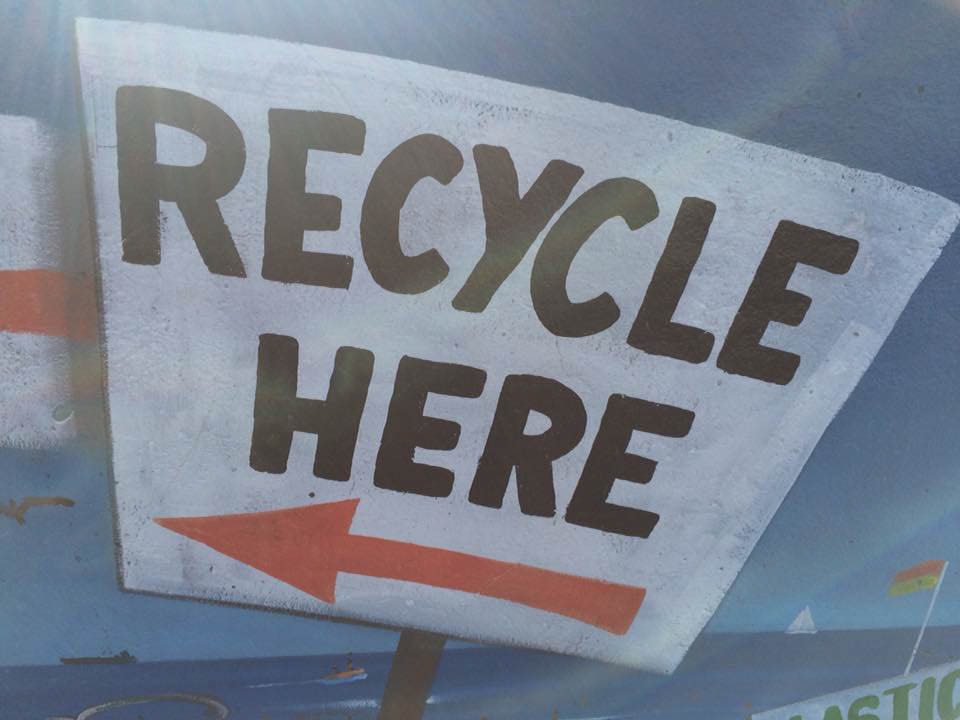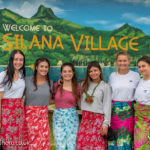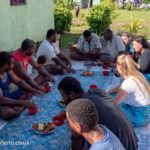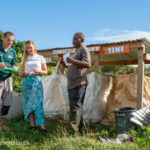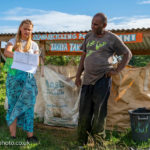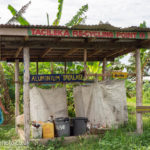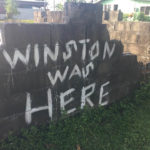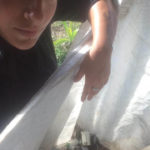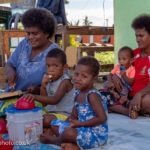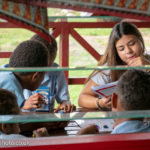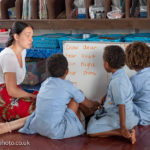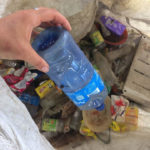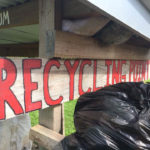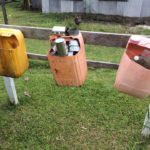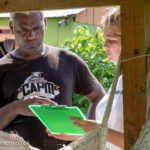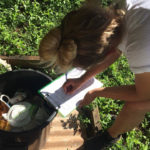After spending a lot of time with the GVI marine based project in Fiji, we were keen to find out more about what else GVI got up too and what other work volunteers and students could get involved in. After meeting Dane Lee Marx, Country Co Ordinator for GVI Fiji, we were left more than excited about heading off to Silana Village to find out about their community projects and most excitingly, their recycling programmes.
This stunning village, fringed by the coastline is picturesque and there really is no other way to describe it. Lush green vegetation, hills, mountains, a crystal sea, neat and tidy pathways leading to traditional style bures and some of the most smiley people I have ever seen!
It is really important to start by saying that this village and others surrounding it was totally destroyed by Cyclone Winston in February 2016. The cyclone was the most intense ever recorded in the Southern Hemisphere. The storm rapidly intensified and winds were recorded at speeds of up to 175mph. The storm destroyed Fiji and the country declared itself in a state of emergency. GVI were based in Fiji before the cyclone hit and returned to help manage the aftermath which left people’s lives destroyed. Driving up to the village was a striking reminder of how recently this disaster actually was. Tree’s still stripped of leaves and homes and facilities still being rebuilt, it was painful to actually be in this place that I saw all over the news only a few years before.
GVI have been a major influence in the restructure of this area with the total participation of its locals. One of the lovely things that came out of it was the comradery and team work and the illustration of the rich culture and community feel that visitors of Fiji have always boasted of. I met with gorgeous Michele Comber, Base Manager at Silana who sat me down and talked me through everything that the village does and that GVI are working towards. We, in true Fijian style nattered over tea and cake and talked about ongoing, new and desired goals and Michele was inspiring. I could have listened to her for hours, so insightful and passionate about what she did and what she and her team had achieved here.
The recycling projects took off right away, with recycling check points dotted around villages and monitored by GVI with volunteers starting to work with community members and village Headmen together about how the systems needed to work to have positive impacts.
We explored various villages and local schools to investigate recycling check points and it became very evident that the systems put in place by GVI were working. Rubbish was sorted into different bags, aluminium, plastics etc and most importantly there was rubbish there! People were recycling and had obviously seen value in doing so.
I remember walking along the beach that lined the village searching for litter and being genuinely surprised that I found so little. I predicted I would see the shore covered in straws, coco cola bottles, wrappers and plastic bags and feeling slightly ashamed that I had assumed there would be. I recorded a short video at the time and watching it back remember feeling pleasantly shocked. I walked along investigating shells and critters instead and it was wonderful.
A local carrier was hired originally and the cost split between GVI and the village youth. The carrier made its way down to Suva, a two hour trip to an official waste recycling unit to drop off its load. Transporting all of the rubbish collected was perhaps one of the biggest challenges to consider considering the districts isolation but in true GVI style it is being overcome with new and innovative ways to maintain the regular transfers. GVI have made strong links with the Ministry of Environment to build positive working relationships and are successful in forming those communications which ultimately will improve the state of waste management in rural areas.
One of my most special moments in the village was when I was chatting to a villager. We sat around sipping tea and scoffing cake after he kindly grabbed my collegue and I as we walked past his home and he invited us in. He had no idea why we were there, our intentions etc but out of nowhere spoke to us about how Silana, his village was being rebuilt into something special. He told me that he knew what was important, that the environment was changing and that Winston showed him that we needed to change with it. He was talking about climate change and I remember thinking how special that moment was. He also talked to me about how much he wanted his children to learn about it. We discussed the lessons GVI run in his children’s school about sustainability and the impact of what our actions now have in the future. It was the most refreshing conversation. This wonderful man, living in this tiny village in the middle of nowhere could understand what humanity and our habits is doing to the environment and he knew that if it was to change the best chance we had was teaching our children to invoke that change. It was kind of mind blowingly lovely.
We all know how important recycling is and how much of what we don’t recycle manages to find its way into our oceans and how much of a terrifying thought that is. We see images of what it is doing to our marine life and where it ends up what we are loosing. I left this village and this project hopeful that if it was working here, it could work anywhere. I left inspired and motivated. That is what being in a place like Silana does to you, it shows you a light at the end of the tunnel, people who have experienced heart wrenching loss and still manage to change the World one step at a time, one piece of plastic here and one plastic bag there.
Learn more at https://www.gvi.co.uk/blog/dawasamu-recycling-program-update/
Photograophy by Radoslaw Krol and Chantelle Wyatt



